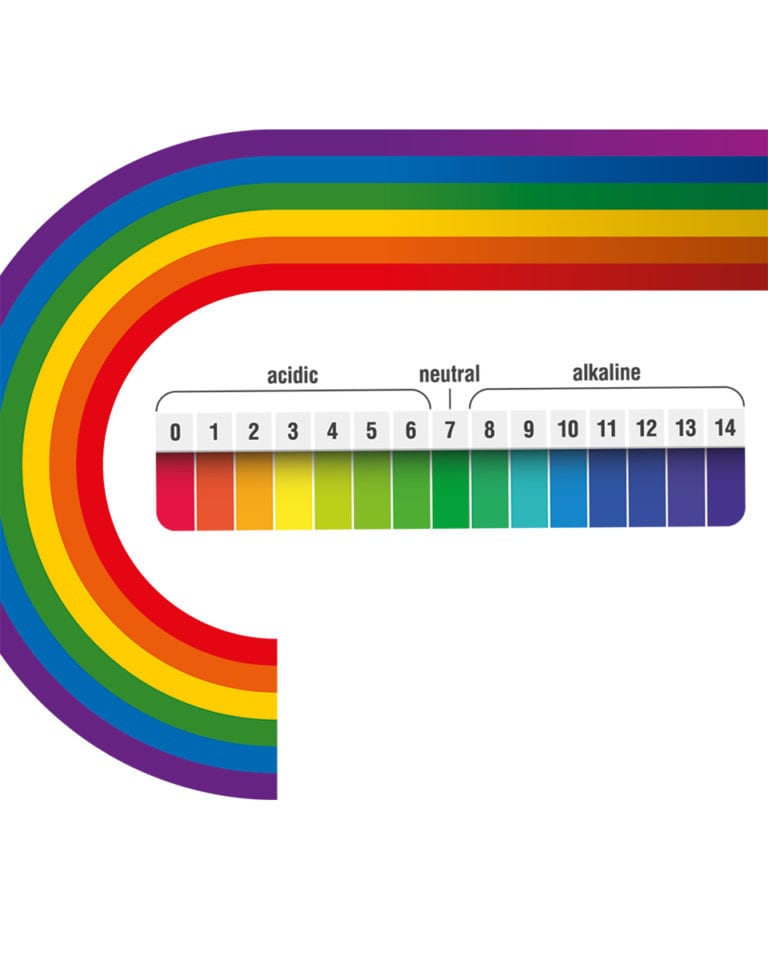Do alkaline diets work or are they all quackery?
So-called alkaline diets help to balance the excess acidity in your body, proponents claim, and can reduce the risk of – or even cure – a host of illnesses. Sue Quinn takes a neutral look at what the diet involves and whether’s there’s any evidence to support the claims.

The alkaline diet theory has formed the basis of various alternative health philosophies for decades: some foods are acid-causing (bad!), others are alkalising (good!) and the right balance is needed for optimum health.
The approach was popularised by Robert O Young in the US, whose best-selling book The pH Miracle: Balance Your Diet, Reclaim Your Health was first published in 2002 and has since been translated into several languages. At this point I should note that, in 2016, Young was convicted of practising medicine without a licence and later sentenced to three years and eight months in prison.
One claim that currently appears on a pro-alkaline diet website states: “Virtually all degenerative diseases including cancer, heart disease, arthritis, osteoporosis, kidney and gallstones and tooth decay are associated with excess acidity in the body.” According to its proponents, consuming alkalising foods will restore the body’s pH – the scale of acidity and alkalinity– to a healthy balance. This involves reducing or cutting out acid-producing foods (proteins including meat, grains and dairy, as well as sugar and alcohol) in favour of alkalising fruit and vegetables.

According to many alkaline diet websites, an 80:20 ratio of alkalising to acid-forming foods is ideal for maintaining ‘pristine health’. Because the regime involves restricting your intake of some nutritious foods, many also sell meal plans and supplements alongside the dietary advice. The approach is extremely popular and reportedly has been favoured by celebrities including Victoria Beckham and Hollywood actress Kate Hudson.
Dozens of alkaline diet books pepper the bestseller lists, health food shops are filled with ‘alkalising’ boosters and powders, and global sales of alkaline water have reached $700 million annually and are rising fast. And yet there’s little scientific evidence to support the sweeping health claims.
The science bit
On the pH scale, 7 is neutral, lower is acidic and higher is alkaline (also referred to as basic). Our blood’s pH is around 7.4 (slightly alkaline) and humans can only function close to this mark. Our bodies are adept at keeping our blood pH levels within a tight range through a process called acid-base homeostasis. Generally, no food or drink you eat will result in your blood pH slipping out of this range.
According to Ailsa Welch, Professor of Nutritional Epidemiology at University of East Anglia’s Norwich Medical School, some foods are acid-producing. The chemistry is complex, but when the liver metabolises protein-containing foods, hydrogen ions are produced, which can lower blood pH. The alkaline salts in fruit and vegetables balance what’s called the acid-base load.

The body regulates its pH by removing excess acidity through the kidneys via urine. (Foods are categorised as acid-producing or alkalising, not by taste, but by their effect on the body after they’ve been consumed. For example, lemons taste acidic but have a high alkaline mineral content and almost no sugar, so are considered alkalising.)
Where did it all start?
Prof Welch says that diet does not significantly affect blood pH – unless
the kidneys aren’t working properly. She suggests the claims that an alkaline diet benefits bones and reduces the risk of osteoporosis can be traced to studies based on people with severe kidney disease.
Some research does suggest that a diet rich in alkalising fruit and vegetables slightly improves muscle mass and bone density, particularly as people age and the efficiency of the kidneys declines. “But the effects are small,” Prof Welch says, “and I feel you’re best off simply balancing any acid-forming foods with alkaline-forming foods, which is basically a diet rich in fruit and, particularly, vegetables.”
What about the cure-all claims?
The alkaline diet is one of the most popular anti-cancer diets: its proponents believe that blood acidity encourages the growth of cancerous cells. But comprehensive scientific reviews have failed to find a direct link. “Claims that alkaline diets can reduce cancer risk are not based on scientific evidence and can be unhelpful and confusing for people trying to make healthy choices,” says Dr Julie Sharp, Cancer Research UK’s head of health information. “There are lots of ways to reduce cancer risk, such as not smoking, keeping a healthy weight and eating a healthy, balanced diet. It’s important to eat plenty of wholegrains, vegetables and fruit, less processed and red meat and fewer high-calorie foods and drinks.”

What about the claims that an alkaline diet can help other medical conditions? “As the alkaline diet is based on a flawed concept, it’s not surprising there is absolutely no evidence that it can reduce the risk of, or treat, diseases including cancer and arthritis,” says Dr Lucy Chambers, senior scientist at the British Nutrition Foundation. In fact, excluding or restricting foods such as wholegrains and dairy could cause health problems. “As these foods provide essential nutrients, followers of the alkaline diet are at an increased risk of not getting everything they need from their diet for good health.”
Some people link alkaline diets and an improvement in chronic inflammatory skin conditions such as psoriasis. Commonly reported triggers for skin flareups include sugar and alcohol, both of which are excluded on alkaline diets, and this may go some way to explaining a perceived connection. Yet, according to the National Psoriasis Foundation in Oregon in the US, there’s still little scientific evidence to prove that diet has a major impact on the condition.
The bottom line
There’s no scientific evidence to support claims that an alkaline diet can balance blood pH and thereby reduce the risk of disease. Emerging research suggests alkalising foods may slightly improve muscle mass and bone density in adults, but this can also be achieved simply by eating a diet rich in fruit and vegetables. Some aspects of alkaline diets can be considered ‘healthy’, but any resulting health benefits have nothing to do with regulating blood pH through diet in healthy people.
Subscribe to our magazine
Food stories, skills and tested recipes, straight to your door... Enjoy 5 issues for just £5 with our special introductory offer.
Subscribe
Unleash your inner chef
Looking for inspiration? Receive the latest recipes with our newsletter



